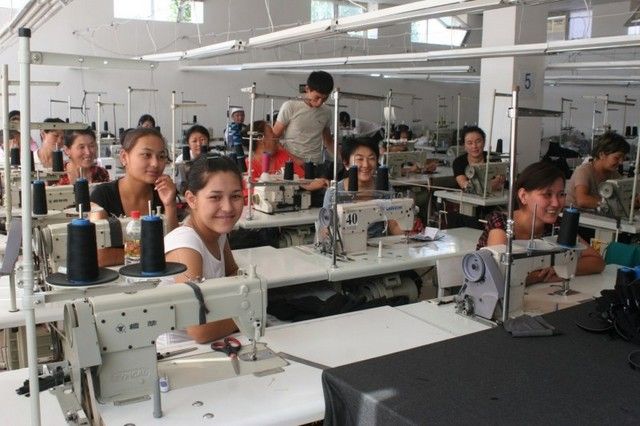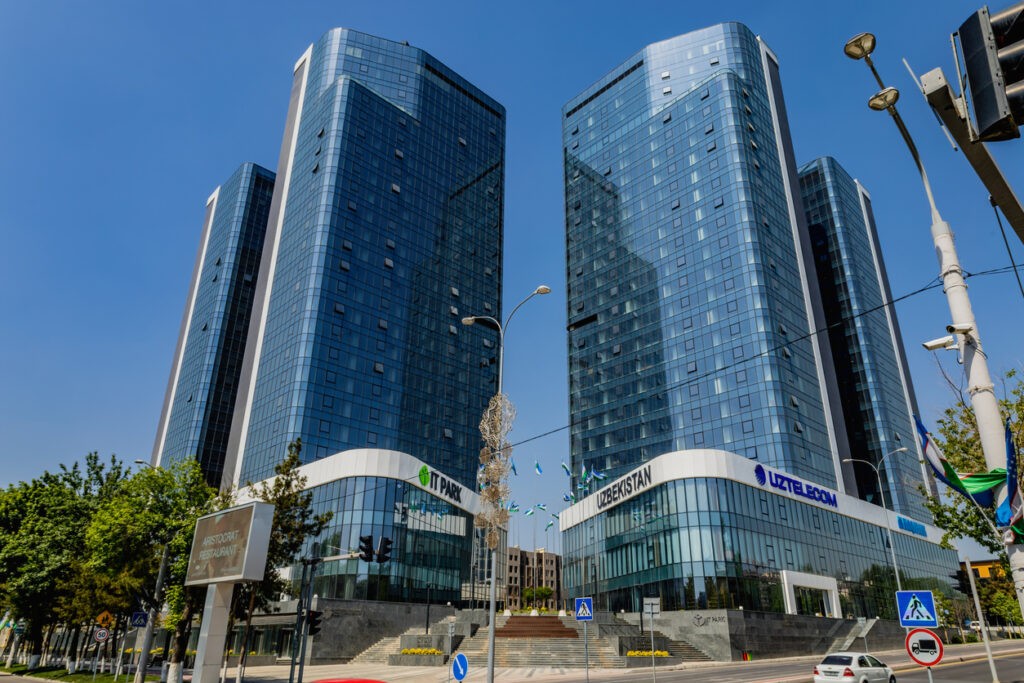BISHKEK (TCA) — Women entrepreneurs significantly contribute to the development of Kyrgyzstan. According to the National Statistical Committee, women make up 41% of the total employed population of the country and 31.3% of entrepreneurs engaged in small and medium-sized businesses.
Traditionally, most of Kyrgyz women work in health and social services, education, hotels and catering. More than 73% of women get lower payment for the same job than men. Kyrgyzstan is improving its position in terms of gender equality, involving more women in the political and business environment.
A conference held on the eve of the International Women’s Day in Bishkek discussed implementation of the Women Entrepreneurship Development project launched in January 2014 and implemented by the Economy Ministry together with private banks and business associations and financed by the Asian Development Bank. The project aims at improving the lives of women in rural areas and small towns of Kyrgyzstan. It is expected that as a result of the project, women micro-entrepreneurs with low income will be engaged in sustainable business.
The conference participants discussed the ways to develop women’s economic capacity, improve access to funding and introduce new financial services for women entrepreneurs.
According to a survey conducted as part of the project, 67.5% of women are entrepreneurs aged 36-55 years; one-third of the women reported that they have between 3 and 5 children; over 70% of the women are in registered marriage.
Most of the women are employed in trade (22.9%), services (16.3%), agriculture (24.9%), public catering (8.2%), and sewing industry (6.2%). Women account for 57% of officially registered unemployed. Given that 14% of the women have higher education, 20% vocational education and 51% secondary education, there is large untapped potential in attracting women to economic activity in the country.
The study showed that to develop women entrepreneurship, it is necessary to create a favorable environment for the further development of financial services, which would not require collateral in the form of immovable property. It is also necessary to create conditions for the development of leasing operations and decrease interest rates of loans.
As part of the project, partners were selected for women business associations and other organized women’s groups, including the Association of Microfinance Institutions, Union of Banks, Jer Azygy Association of Agro-business in the Osh province, and a branch of the Association of Young Entrepreneurs in the Talas province.
The state owned Aiyl Bank had transferred two tranches of project funds worth $75 thousand and 23 women entrepreneurs received loans. Bai Tushum Bank has transferred two tranches worth $75 thousand, and 29 women entrepreneurs received loans. $25 thousand of the third tranche was directed for lending to women providing services of guest houses and yurt camps. In total, the project has issued 73 credits for women entrepreneurs. A monitoring has shown that women entrepreneurs have used 15% to 32% of their net income to expand their businesses.
The project provides support for women’s entrepreneurship through training and access to finance.
Special attention was paid to the southern region. Last year, the “Start Your Business” competition was implemented in cooperation with the Association of Agro-business of Kyrgyzstan “Jer Azygy”. It was aimed at promoting the economic empowerment of women entrepreneurs in Osh, Batken and Jalal-Abad.
In remote rural areas, unemployment urges women think about starting their own business. About 300 beginner entrepreneurs aged between 18 and 45 applied for the competition initiated by the project. Business applications included initiatives on opening of kindergartens, construction of greenhouses, creating textile production.
Practice has shown that in some areas women are not only equal to men but also able to run business more successfully, for instance in the beauty industry (hairdressing salons, health clubs, and beauty centers), sewing business and handicrafts, education for children and adults, private kindergartens and various courses, small wholesale and retail trade, fast-food, and tourism.
However, the difficulties faced by women entrepreneurs often do not allow them to fully use their potential. It is financial problems, low financial literacy, lack of experience and qualification, lack of incentives and other mechanisms to support women in taxation and crediting, and lack of support from the Government in logistics and marketing.
In the long-term perspective, the number of female managers should increase in large companies and women’s entrepreneurship should move to a higher level, from small business to middle-size business and on to large business.









